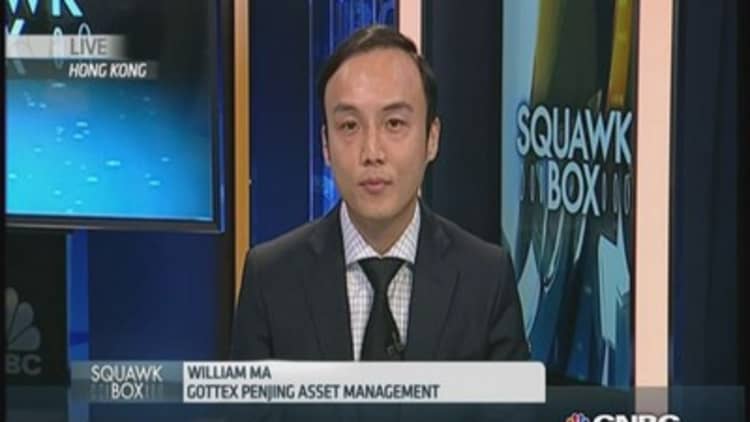Tencent's new private bank is expected to bring in a host of reforms for China's financial system, but several challenges could soon derail optimism, experts say.
On Monday, the internet behemoth launched Webank, China's first-ever online private bank, which is expected to provide loans to small and micro-sized enterprises (SMEs), a market long underserved by commercial lenders due to higher perceived risk compared to larger companies. Tencent has a 30 percent stake in the business, while investment firms Baiyeyuan and Liye Group own 20 percent each. The remainder belongs to seven shareholders, according to media reports.
During the launch ceremony in Shenzhen, Premier Li Keqiang urged the firm to "reduce costs to let small clients have tangible benefits, this can also help compel traditional finance to speed up reforms...this is a small step for Webank, but it's a big step for financial reforms."
Li then issued the company's first loan: $5,600 to a truck driver. If Webank goes down the path of lending money to individuals, instead of strictly to companies, it could lead to trouble, according to Jim Antos, bank analyst at Mizuho Securities Asia.
"Those amounts are too small to be dealing with. Lending to individuals tiny amounts of money looks like a blueprint for problems. Once somebody is out the door, how can Webank ensure that it will be collected?" he told CNBC.
Read MoreRBC's top Internetstock picks
Intensifying competition among domestic companies will also be a major headwind, warned Henry Guo, senior research analyst of China internet and media at JG Capital.
Alibaba received approval for a private bank license in December, alongside Tencent, with the official launch anticipated sometime this year. Meanwhile, Baidu applied for a private banking license last March. In total, the China Banking Regulatory Commission (CBRC) has granted five private bank licenses under a new pilot program.

Furthermore, potential regulatory changes concerning transparency and protection of funds may also be an obstacle to private banks, which could increase uncertainty in the outlook for internet finance, Barclays stated in a report on Monday. Last year, the People's Bank of China limited the amount of funds customers can transfer to third-party payment platforms in an attempt to strengthen security.
Slow and steady growth
The emergence of private banks won't compete with China's traditional banking system - one of the biggest in the world- anytime soon, according to experts.
"If you look at Alibaba's wealth management service, the amount of deposits in there is something like $300 billion, which is less than 1 percent of ICBC's deposit base. These online initiatives have made unbelievable progress in a short amount of time, but they have a long while to go compared with China's megabanks," Mizuho's Antos said. He only expects competitive pressure to emerge in 10 years' time.
Read MoreThe start-up that'sbuilding China's banking system
While internet finance doesn't pose an immediate threat to existing players, sentiment towards the sector is sensitive. A survey by the China Banking Association (CBA) and PricewaterhouseCoopers last month revealed that nearly half of bankers believed that internet finance is diverting deposits away from traditional banks, while 30 percent said it was also pushing up the cost of funding.
Barclays believes private banks will likely introduce more innovative financial products than their state-owned peers, such as credit lending and consumer loans, making them more dynamic in comparison.
"In the long run, banks will have to keep competing with these types of Internet finance products, they will be in competition for deposits," said Alastair Chan, economist at Moody's Analytics.

